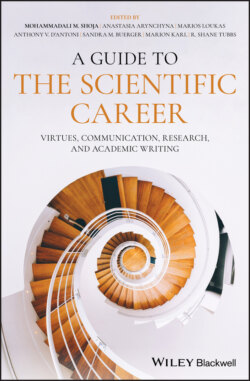Читать книгу A Guide to the Scientific Career - Группа авторов - Страница 116
10.2.11 Academic Manners as a Reviewer
ОглавлениеWhether you are reviewing for a journal or book proposal, there are some loose guidelines that, although not “rules,” can make your efforts more useful to the authors and publisher that you are working for.
As a reviewer, you hold a unique position that carries with it a lot of weight in that your comments can make or break a submission or proposal. Although there are usually multiple reviewers for say a journal article, a single reviewer can do much damage to a submission and the authors' feelings. Most authors believe that their academic submission is the best the world has ever seen. Therefore, there are often statements in the paper that may come across as grandiose. I think that a good reviewer will ignore such statements and simply and courteously mention that the authors might want to tone down their paper in this regard. Alternatively, the reviewer can just inform the editor that some of the comments are too bold and take themselves out of the “bad guy” role. Earlier in this chapter, I mentioned that author's should never take what a reviewer says about their paper personally. The reverse is also true. The reviewer should not take anything that the authors say to heart. There are often cultural or other idiosyncrasies that authors come to the table with. As a reviewer, one should try to overlook these and focus on the essence of the submission. For example, many papers will come to reviewers in English that is very poor. Instead of holding this against the authors, I always consider how my paper would read if I tried to write an academic paper in for example, Romanian. Another perspective is to view the submission by a non‐native speaker as courageous. This technique, I think, helps look beyond the construction of the paper and focus on the content. This being said, the reviewer's comments can often come across as too professorial or harsh. A good review will provide the authors with a constructive criticism and should always strive to guide the authors to a better submission. Even when a paper or book proposal is so bad that it will be rejected no matter what the authors do, e.g. flawed methodology, a good reviewer will try to point out the major problems. Making inflammatory comments or attacking an author's ability to write in your language never leads to anything positive. Always remember when you first began writing and publishing and put yourself in the place of the authors.
